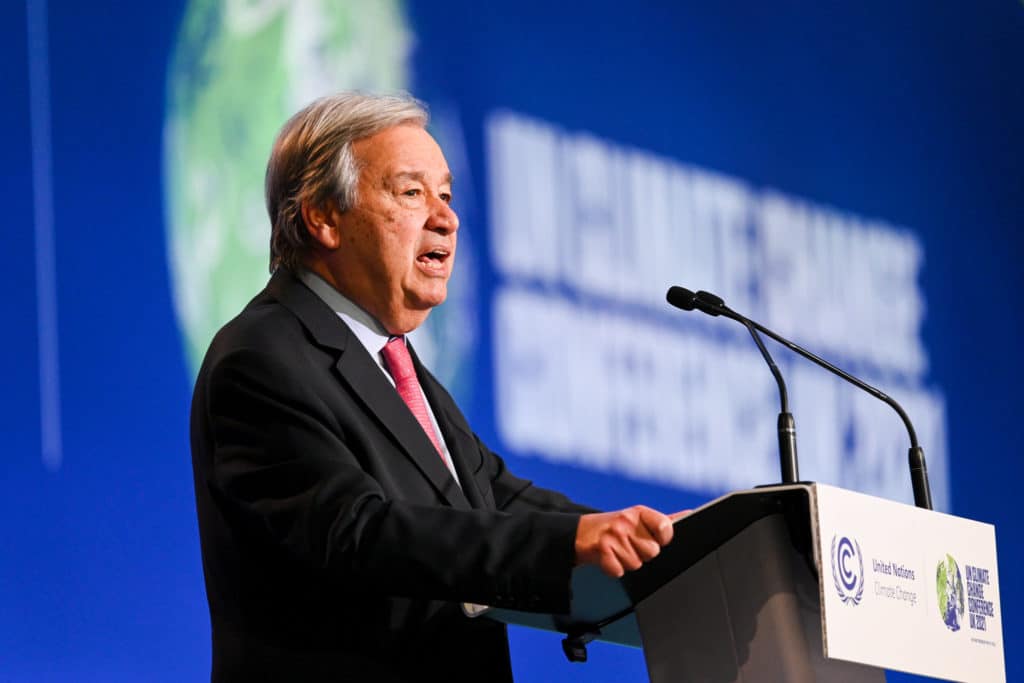The newly appointed UN climate chief – Simon Stiell – faces the challenge of bringing countries back on track to meet Paris Agreement goals at a time when a global energy crisis sparked by the conflict in Ukraine is slowing down progress made so far.
—
On Monday, Secretary-General António Guterres announced the appointment of Simon Stiell as the new UN climate chief, defining him as a “true champion” of creative approaches to the climate crisis.
A long-time advocate for climate action, Stiell has served as minister of environment and climate resilience of the Caribbean island nation of Grenada for the last five years. Before that, the UK-trained engineer and MBA holder served as Minister for Education and Human Resource Development, Minister of State with responsibility for human resource development and the environment, and as a Parliamentary Secretary within the Ministry of Agriculture, Lands, Forestry and Fisheries.
He brings more than three decades of experience in the climate field and stood out repeatedly for his relentless calls for more progress in the fight against climate change in previous COP summits.
“His experience as a politician in Grenada will no doubt have given him a deep appreciation of the huge and growing risks that climate change poses to developing countries.” – said Bob Ward, director of policy at the Grantham Institute of the London School of Economics, following Stiell’s appointment on Monday. “He must be tough with those countries, particularly the G20, who are failing to live up to their responsibilities.” – he added.
The newly appointed executive secretary of the UN Framework Convention on Climate Change (UNFCCC) is expected to take up office shortly, replacing Patricia Espinosa who just completed her second, three-year term, and suggesting that he would be in office for this November’s UN climate conference, COP27, in Egypt.
Stiell will face the task of putting countries back on track to meet the Paris Agreement goals. Since last year’s COP26 commitments to cut emissions in line with the 1.5C temperature rise limit, the world has been confronted with rising geopolitical tensions and a global energy crisis. Moreover, the effects of climate change are becoming increasingly apparent, with this summer’s extreme weather events, in particular, resulting in floods, record-breaking wildfires, and droughts and thus threatening food and water supplies across the globe.
“We need to change course — now — and end our senseless and suicidal war against nature. We know what to do. And, increasingly, we have the tools to do it. But we still lack leadership and cooperation.” – said Guterres at the Stockholm+50 international meeting this June. The upcoming conference will be a tough test for global negotiators, as the latest IPCC climate report warned that “It is now or never” to limit global warming to 1.5C.
You might also like: India and Australia Approve New Emission Reduction Targets as COP27 Approaches


















